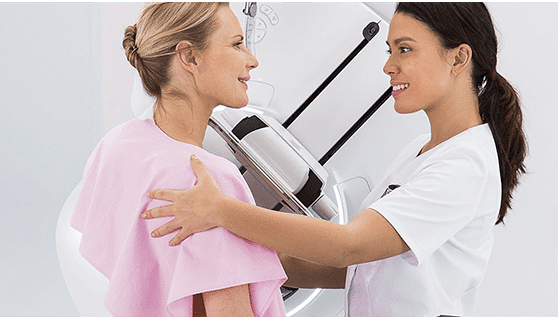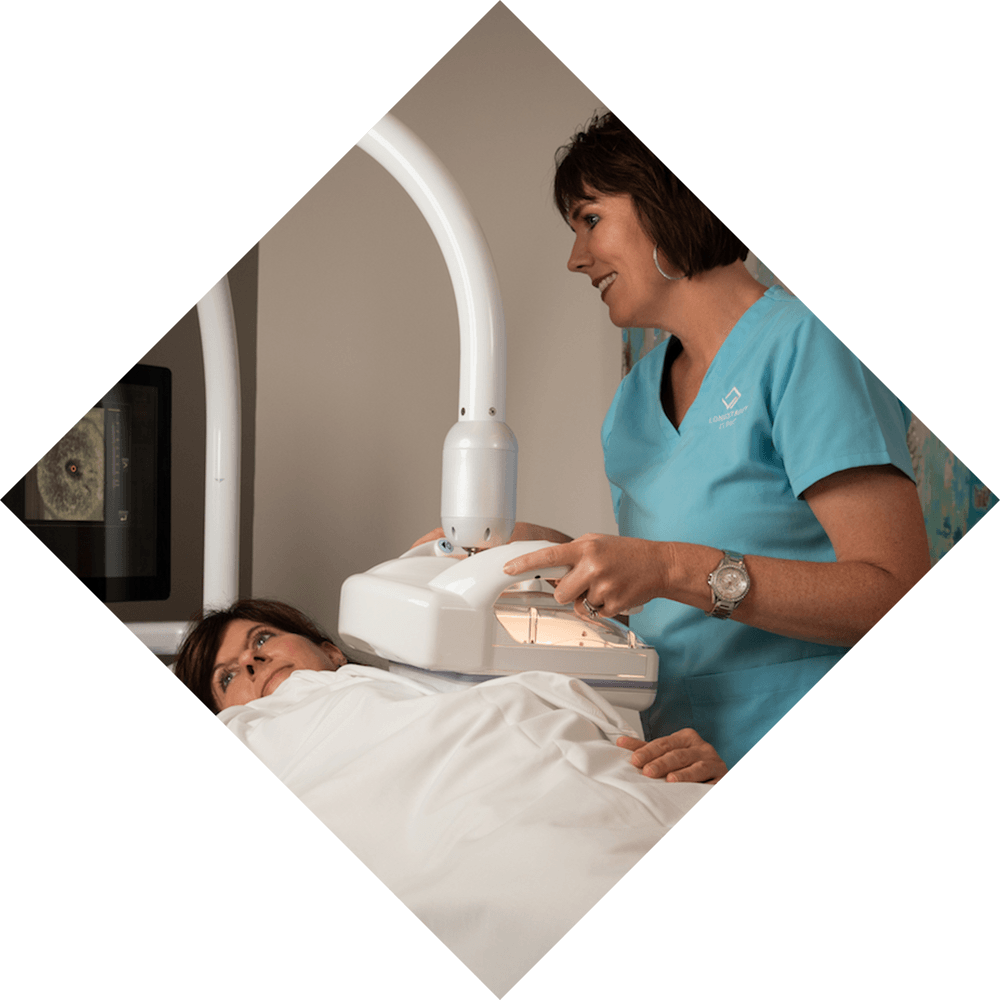During Breast Cancer Awareness Month in October, the color pink is everywhere, from pink bows on buildings to pink socks on the athletic field as people of all ages show solidarity with those battling the disease that affects 1 in 8 U.S. women. It’s a visual reminder of the vigilance required in order to maintain good health, but good health is important year round.
That’s why Longstreet Clinic continues to emphasize the importance of early detection in the fight against breast cancer by investing in leading edge technology to aid in that goal. At Longstreet Clinic’s Breast Center, women now have access to 3D mammography in addition to 3D Automated Breast Ultrasound (ABUS), making it the only location within 50 miles offering both important tools under one roof.
The Senographe Pristina 3D by GE transforms the mammography experience through enhanced comfort for the patient while also providing more clarity and superior diagnostic accuracy for the radiologists examining the images. 3D mammography, also referred to as Digital Breast Tomosynthesis (DBT) or tomo, helps clinicians see behind normal breast tissue where abnormalities could hide in 2D images and between overlapping breast tissues.
 Leading the way in early detection
Leading the way in early detection
In 2018 Longstreet Clinic became the first in our area to add ABUS, another screening tool that improves cancer detection by 35 percent over normal mammography alone for women with dense breast tissue (estimated at 40 percent of females). The 3D ultrasound technology examines dense tissue differently, allowing providers to locate tumors that may have otherwise gone unnoticed.
“These are powerful tools for patients and providers alike,” said David Kimball, M.D., Longstreet Clinic radiologist.
Breast density is determined by a board-certified radiologist who reads the patient’s mammogram and classifies the density into one of four categories: almost entirely fatty, scattered fibroglandular densities, heterogeneously dense or extremely dense. And thanks to the adoption of “Margie’s Law” in 2019, Georgia now requires clinicians to provide a density score on each women’s mammogram report.
“Early detection saves lives, and we believe ABUS and 3D mammography will become an integral part of our practice in an effort to find breast cancers earlier,” said Longstreet Clinic radiologist Scott Kellermeyer, M.D.
The Longstreet Clinic Breast Center offers extended daily hours – from 7 a.m. to 5:30 p.m. on weekdays – as well as select Saturday hours in order help women with busy schedules access these important screenings.
For more information, call the Longstreet Clinic Breast Center at 770-533-4700, or click here.

